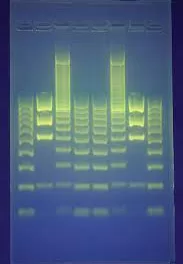As Valentine’s Day approaches, many couples prepare to celebrate love in its various forms. While gifts and romantic gestures are cherished traditions, science suggests that physical affection—hugging, kissing, cuddling, and even simple touches—has profound benefits for mental and physical health.
The Power of Touch
Physical affection plays a crucial role in communicating intimacy in romantic relationships. It is a universal expression of love that transcends cultural differences. Research has found that individuals in romantic relationships engage in more physical affection compared to those who are single. Moreover, people are more comfortable being touched by their partners in intimate areas than by friends or strangers.
The way we touch our partners also differs from how we interact with others. Studies have shown that people stroke their partners more slowly than they would a friend or stranger, making the experience more pleasant and emotionally fulfilling. Even just thinking about affectionate touch from a partner can evoke comforting and pleasurable sensations.
Health Benefits of Physical Affection
Scientific research has established a strong connection between physical touch and improved overall well-being. A comprehensive review of 212 studies involving over 13,000 participants found that physical touch interventions—such as massage—led to better sleep, lower blood pressure, and reduced fatigue. These interventions were particularly effective in alleviating pain, depression, and anxiety.
Couples and Physical Affection
For couples, physical affection extends beyond momentary pleasure—it has long-term health benefits. Studies indicate that affectionate touch between partners is associated with lower blood pressure, better immune responses, and enhanced psychological well-being. Couples who engage in ‘sleep-touching’—cuddling before or after sleep—report feeling happier and more connected to their partners.
Physical affection also contributes to relationship satisfaction. Kissing, post-intimacy affection, and regular cuddling are linked to greater emotional and sexual fulfillment. Furthermore, during conflicts, a simple hug can help reduce negative emotions and stress levels, reinforcing the emotional bond between partners.
Psychological Strength and Stress Reduction
Beyond fostering emotional connection, physical affection can make individuals feel psychologically stronger. Research shows that women experience less activation in brain regions associated with fear when holding their partner’s hand. Even imagining affectionate touch can boost confidence and encourage individuals to take on challenges.
The absence of touch, on the other hand, can have adverse effects. Studies highlight that ‘touch deprivation’ is linked to increased symptoms of depression and anxiety. During the COVID-19 pandemic, many people experienced heightened stress and loneliness due to reduced physical contact. Among couples, a lack of physical affection is associated with lower relationship satisfaction and greater emotional distress.
The Science Behind Touch
Affectionate touch stimulates the brain’s reward system, releasing oxytocin—often called the ‘cuddle hormone’—which enhances social bonding and trust. It also lowers cortisol levels, helping to alleviate stress and pain. A study found that a ten-minute neck-and-shoulder massage from a partner significantly reduced cortisol levels, promoting relaxation and emotional stability.
Individual Differences in Affection Preferences
While physical affection is beneficial, not everyone enjoys frequent touch. Some individuals have ‘touch avoidant’ tendencies, often influenced by attachment styles. Those with avoidant attachment may feel uncomfortable with closeness, whereas individuals with anxious attachment may seek more physical affection than their partner is willing to provide. However, when couples share similar preferences for physical touch, their relationships tend to be stronger and more fulfilling.
Enhancing Relationships Through Touch
Couples looking to incorporate more non-sexual physical affection can explore activities like home massages. Studies show that couples who exchange massages experience a deeper connection, reduced stress, and improved relationship satisfaction.
Conclusion
As we celebrate Valentine’s Day, it’s worth remembering that physical affection is more than a romantic gesture—it is a powerful tool for emotional connection and overall well-being. Whether through holding hands, cuddling, or a simple reassuring touch, embracing physical affection can lead to happier, healthier relationships.
Disclaimer: This article is for informational purposes only and is not a substitute for professional medical or psychological advice. If you have concerns about physical affection or mental health, consult a qualified healthcare provider.












